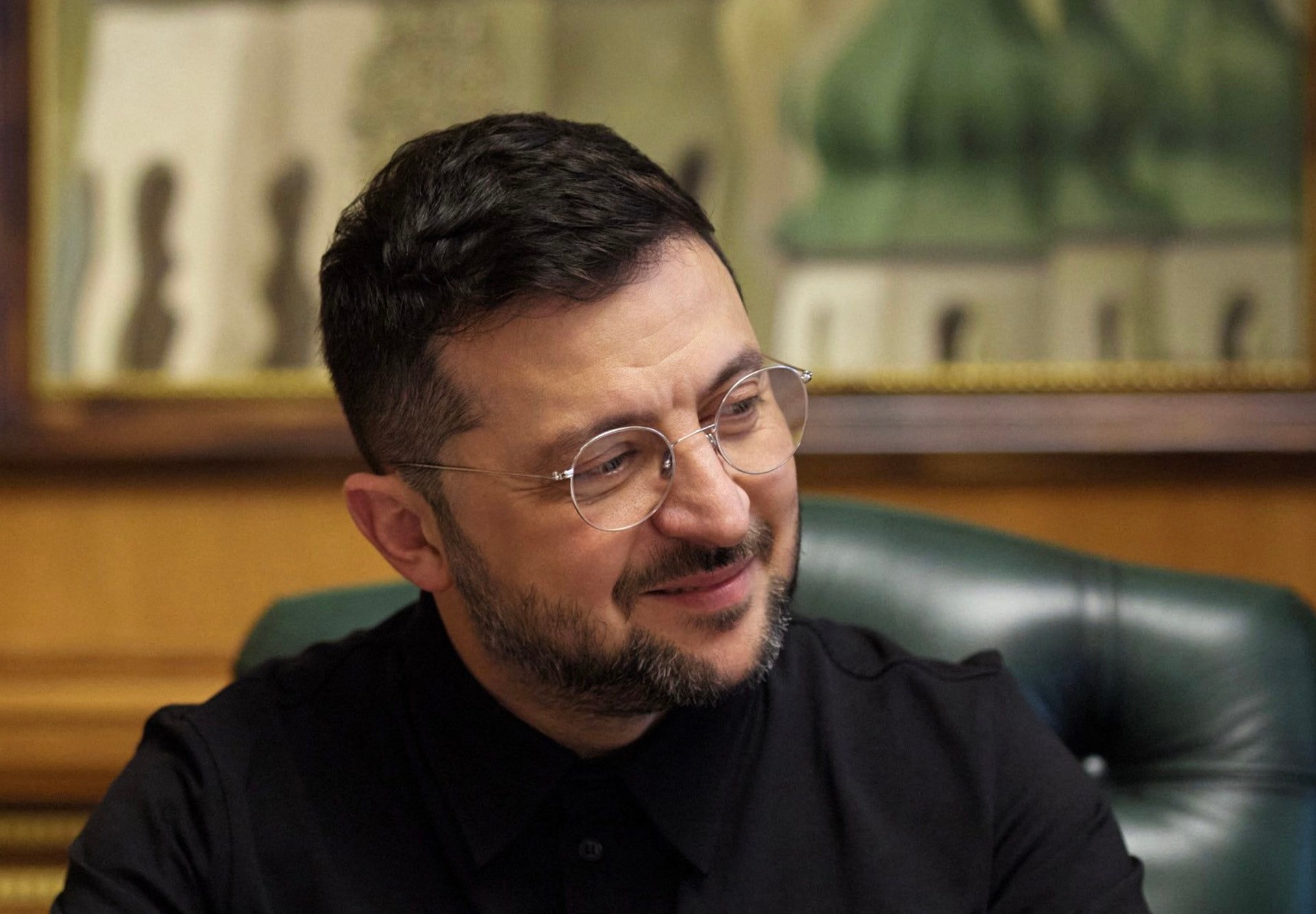- Another Samsung Galaxy tri-fold rumor emerges
- The phone “may” now be sold in international markets
- We could see an official launch in the next few weeks
Good news if you were hoping to get your hands on the long-awaited tri-fold foldable phone from…

Good news if you were hoping to get your hands on the long-awaited tri-fold foldable phone from…


The Kremlin has warned of the risk of escalation if Kyiv is provided with the US-built long-range missiles.
Published On 12 Oct 2025
Ukrainian President Volodymyr Zelenskyy has said his…

Laura DevlinNorthamptonshire
 Aimee Dexter/BBC
Aimee Dexter/BBCThe new King and Queen Conker have been crowned after a closely-fought contest at the World Conker Championships.
Hundreds of competitors went…

The Indian cricket team lost to defending champions Australia by three wickets in its fourth match of the Women’s ODI World Cup 2025 at the Dr Y.S. Rajasekhara Reddy ACA-VDCA Cricket Stadium in Visakhapatnam on Sunday.
Batting first, India posted…

Playtonic’s Yooka-Laylee invited players to a whimsical world inspired by the masterpiece of Banjo-Kazooie. Reviving the nostalgic platformers of old, the title played a lot like a classic 3D title with…
![Creators Are Drawing Big Crowds With IRL Events [Infographic]](https://afnnews.qaasid.com/wp-content/uploads/2025/10/Z3M6Ly9kaXZlc2l0ZS1zdG9yYWdlL2RpdmVpbWFnZS9jcmVhdG9yc19JUkxfaW5mb2dyYXBoaWMyLnBuZw.webp.webp)

Unlock the White House Watch newsletter for free
Your guide to what Trump’s second term means for Washington, business and the world
The global economy is proving more resilient than expected, despite the ferocity of Donald Trump’s trade war, but geopolitical turmoil and depressed business confidence risk sapping growth, according to research for the Financial Times.
Real activity in advanced economies is at its firmest in nearly three years, despite the shock of the US president’s tariffs, according to the latest findings of the Brookings-FT Tracking Indexes for the Global Economic Recovery, or Tiger.
Expansion has been driven in part by households and businesses bringing forward spending and investment before US tariffs took effect. A surge of investment in artificial intelligence and related technologies has helped sustain US growth in particular.
But Eswar Prasad, a senior fellow at the Brookings Institution, warned of “cracks in the foundation”, including a disconnect between buoyant stock markets and threats to the growth outlook.
The research reveals “an economic landscape that looks benign but remains unsettled, with household and business confidence weighed down by trade policy uncertainty, political upheaval in many countries, and geopolitical volatility,” Prasad said.
The findings come as policymakers and economists prepare to gather for the IMF and World Bank’s annual meetings in Washington that start on Monday.
Underscoring the geopolitical volatility, Trump on Friday warned he was considering a “massive increase” in US tariffs on China because of its decision to impose sweeping export controls on critical minerals.
Speaking ahead of the meetings, IMF managing director Kristalina Georgieva said the fund sees global growth slowing “only slightly this year and next”, with all signs pointing to “a world economy that has generally withstood acute strains from multiple shocks”.
This was the result of a private sector that has proven more adaptable than expected to the new trade order, while the impact of tariffs has been less severe than initially feared when Trump announced his “liberation day” package of levies in April. Financial conditions have remained supportive because of skyrocketing equities.
The US trade-weighted tariff rate has fallen from 23 per cent in April to 17.5 per cent now, the IMF calculates. US GDP increased at an annualised rate of 3.8 per cent in the three months to the end of June.
But Georgieva voiced concerns about risk factors including the potential for a sharp correction in equity markets as the AI boom pushes valuations towards dotcom bubble levels.
“Financial markets, which were initially spooked by America’s erratic trade policies, are forging ahead, with equity indices across the world scaling new highs even as growth prospects weaken,” said Prasad.
“Policymakers need to use this time of relative calm to push forward with reforms and disciplined policies that will improve their economies’ resilience in the face of greater volatility engendered by the breakdown of the rules-based order,” he added.
Underscoring the threats to growth, the Tiger index revealed persistently moribund household and business confidence readings in advanced economies, even as sentiment remains above longer-term averages in emerging markets.
While global economic activity has continued to trend higher, the research highlighted early signs of a slowdown in US indicators, alongside a sluggish performance in China.
“The US economic expansion is losing steam as the Trump administration’s erratic trade policies, harsh attitudes towards immigration, and cuts in social expenditures take a toll on growth and employment,” said Prasad.
“While the probability of a recession remains low, aggregate indicators have thus far masked manufacturing sector weakness and the labour market looks less robust than it had appeared just a couple of months ago.”
Indicators for the Eurozone signal lukewarm prospects, he added, with Germany facing the potential for a third consecutive year of contraction and France grappling with an ongoing political crisis that has shaken faith in its public finances.
Growth in real activity in the UK has remained positive but the prospect of another tough Budget from chancellor Rachel Reeves on November 26 is weighing on sentiment. UK GDP growth slowed to just 0.2 per cent in the three months to July, while inflation — at 3.8 per cent in August — has remained well above the Bank of England’s 2 per cent target.